Saphala Ekadashi Vrat Katha
🥭 The fast that does not go barren; ensures the fruits of success in Life!
⚫ ShriHari Mandir (Porbandar) is celebrating Saphalā Ekādaśī fast on Thursday, 30th December, 2021.
⚫This fast is observed on the eleventh day of the second fortnight (Krṣṇa pakṣa) of the month of ‘Mārgaśīrṣa’ in the Gurjar region, and of the month of ‘Pauṣa’ in the Northern part of India.
⚫ In this series of ‘Ekādaśī Vrata Kathā’, Lord of Lords ‘Devadeveśvara’ Śrī Krṣṇa, explains the name, method, main deity to be worshipped and the special significance of this fast, in response to the humble enquiry to learn, from Dharmarāja Śrī Yudhiṣṭhira Māharāja, in the ‘Uttara Khaṇḍa’ of the Padma Purāṇa.
⚫ ‘Not even the greatest of yagñas with generous due remuneration (dakṣina) bring me contentment, as much as someone who observes the Ekādaśī fast does. Thus, one should strive to observe the holy Ekādaśī fast,’ says Lord Śrī Krṣṇa.
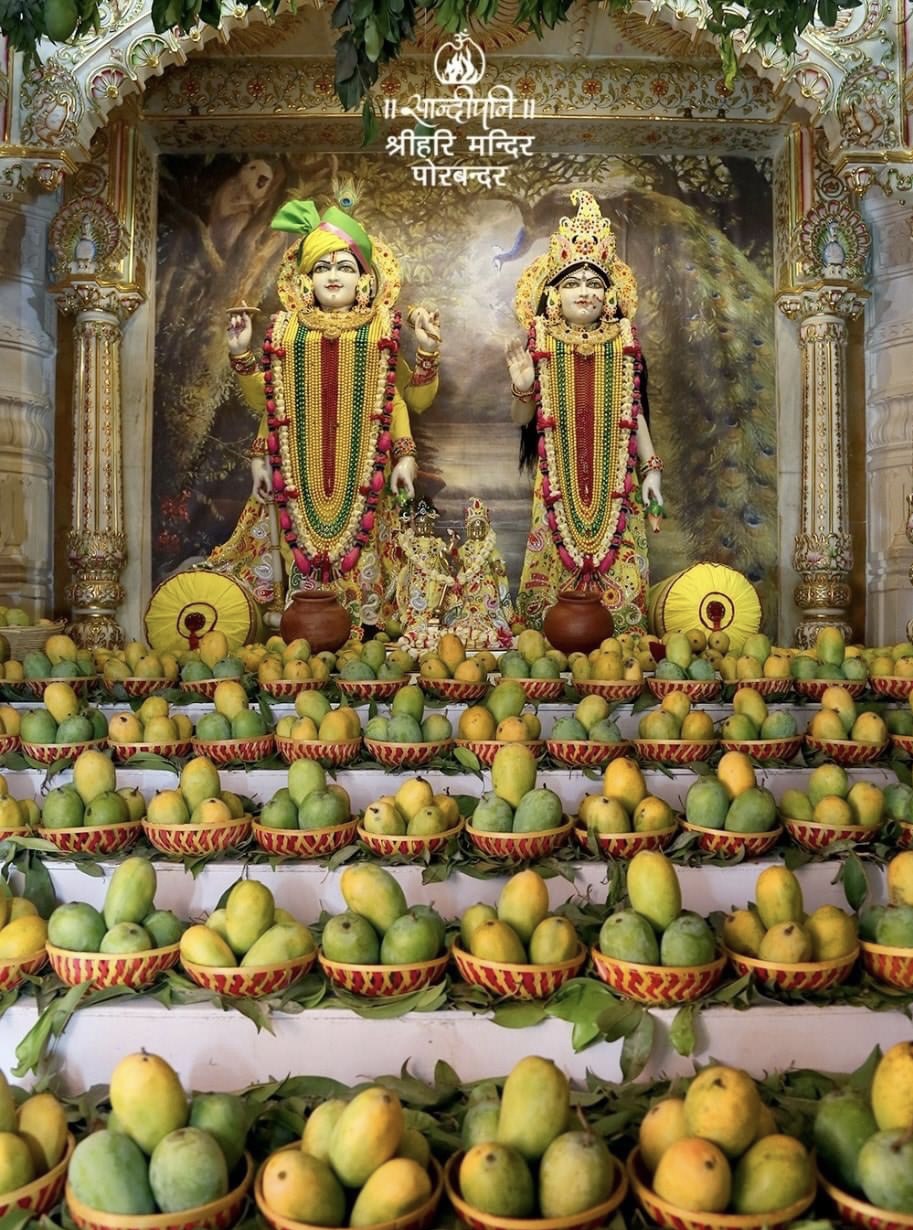
⚫ How Should One Observe this Ekādaśī Fast?
– One should:
– Engage in the ritual worship of Lord Nārāyaṇa on this day.
– Especially please Lord ShriHari by chanting His Names (Nāma Mantra), along with offering various fruits (coconut, a betel nut, ripe limes, lemons, pomegranate, gooseberry, cloves, berries)
– Examples of Nāma Mantras, are:
– govindāya namaḥ
– hṛṣīkēśāya namaḥ
– nārāyanāya namaḥ
– Perform charity of ghee lamps (dīpa dāna).
– Stay awake at night along with other devotees of Lord Viṣṇu (Vaiṣṇava) (One who stays awake at night in front of the Lord Viṣṇu, reaps fruit that is unattainable even after performing asceticism for thousands of years.)
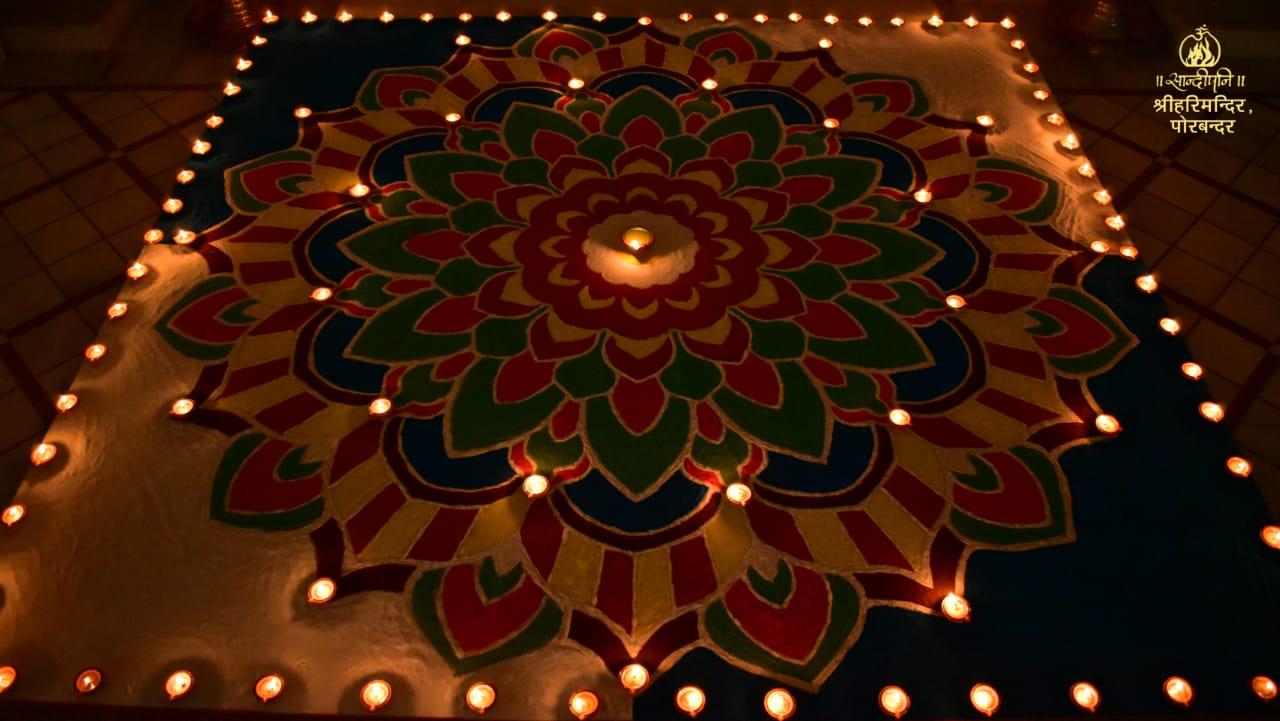

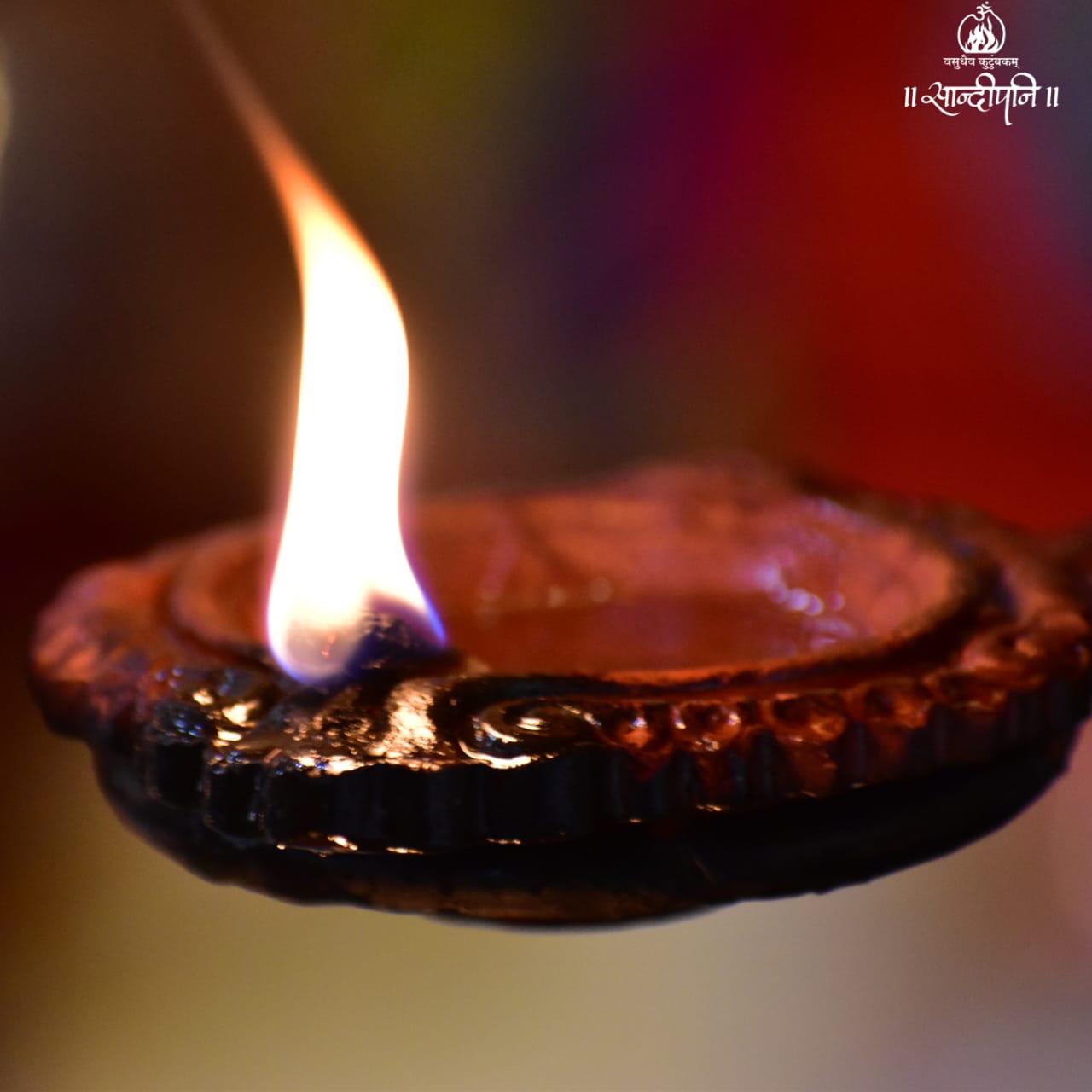
⚫ What is the Story of Saphalā Ekādaśī?
❖ In the ancient past, there was once a righteous King called Māhiṣmata, who used to rule over the famous capital of ‘Campāvatī’.
❖ King Māhiṣmata had five sons, the eldest of whom was a great sinner. Not only would he used to have affairs with other women and prostitutes; but he would spend all of his father’s wealth in sinful deeds. A man who did not think twice before condemning devotees of Lord Viṣṇu (Vaiṣṇavas), deities or Brāhmaṇas!
❖ Thus, the King Māhiṣmata named his eldest son, Lumbhaka (one who harasses) and, along with his four remaining sons, ousted Lumbhaka from the state.
❖ This, however, did not stop Lumbhaka, who by his very nature was a troublemaker. He would repeatedly come and loot the city.
❖ After having left the city, Lumbhaka began dwelling in the forest. One day, he got caught in the middle of conducting his loot; however, when he gave the night guards his introduction as the King’s son, the guards let him go.
❖ In this way, Lumbhaka would continue to commit sinful deeds, and then hide in the forest; sustaining himself by eating fruits and meat.
❖ He had created his resting place by a very old Peepal Tree (tree of Lord Viṣṇu), which was considered to be a great deity in that forest. Then one day, due to the effect of previously accrued merit, Lumbhaka unintentionally managed to observe the most holy Ekādaśī fast.
❖ What happened, was that on the tenth day (daśamī) of the second fortnight (Krṣṇa pakṣa) of the month of Pauṣa, the sinful Lumbhaka ate fruits; however, due to being bare-bodied, he had to suffer the consequences of the stark cold. He got neither sleep nor rest; he simply lay there lifelessly.
❖ Even on the next day (Saphalā Ekādaśī) at sunrise, Lumbhaka did not gain any consciousness—until afternoon time.
❖ He took in his bearings and slowly stood up, limping his way deeper into the forest. Weak and afflicted by hunger, Lumbhaka plucked some fruits and brought them back with him.
❖ However, his body was so weak that the moment he reached the Peepal tree, he collapsed. And that is when the sun set.
❖ Dedicating the fruits at the roots of the Peepal tree, Lumbhaka said with a devoted heart,
‘O Lord Viṣṇu, may these fruits bring you contentment.’
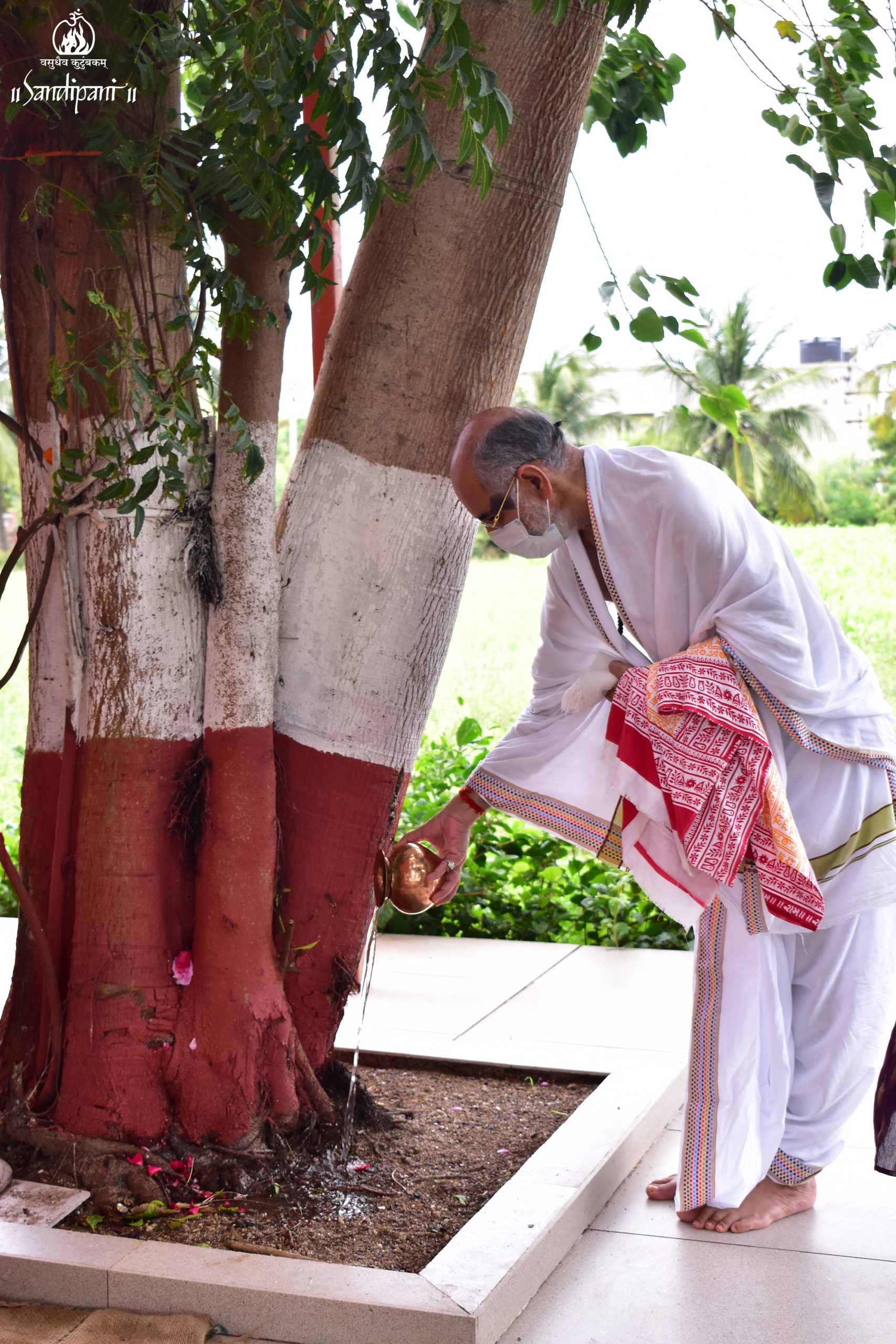
Having said that, Lumbhaka stayed awake the whole night. Thus, in this manner, Lumbhaka involuntarily observed this Saphalā Ekādaśī fast.
❖ This is when he heard a celestial voice—
‘O Prince, you will enjoy reign and progeny as the fruit of observing this Saphalā Ekādaśī fast.’
Lumbhaka rejoiced and happily accepted the fruit of this meritorious deed.
❖ Lumbhaka was thereafter blessed with a divine form, and his most-excellent divinely-inclined intellect was constantly engaged in worshipping Lord ShriHari. Being adorned in and glorified by divine jewellery, Lumbhaka enjoyed uninterrupted reign for fifteen years.
❖ At the same time, Lord Śrī Krṣṇa blessed Lumbhaka with a son called Manojña—who was equally righteous, and similar to his father in all ways.
❖ When Manojña grew up, Lumbhaka spontaneously let go of his affection for the kingdom and entrusted it to his son.
❖ Lumbhaka delved further deeper into Lord Śrī Krṣṇa’s divine shelter—a place from where one never again falls into the trap of sorrowful lamentation (śoka)!
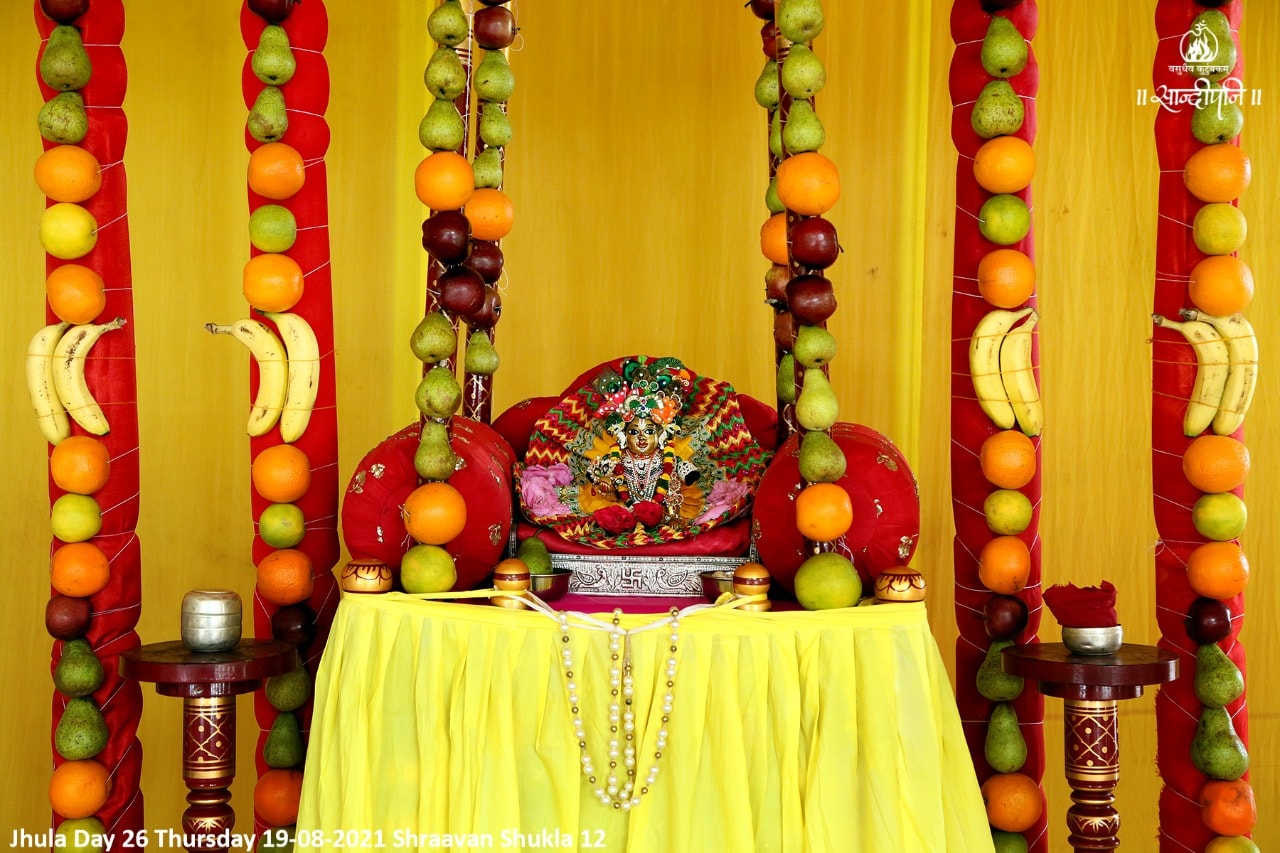
⚫ What are the Fruits Reaped from Observing this Saphalā Ekādaśī Fast?
– One who:
– Observes this Saphalā Ekādaśī fast, attains liberation (mokṣa) (after one leaves one’s body), after having enjoyed the joys of this material world (saṃsāra).
– Reads, listens or conducts oneself according to the significance of this vrata kathā, reaps the fruit of performing a Rājasūya Yajña.
⚫ His is a truly blessed and successful (saphala) life, for who constantly observes this Saphalā Ekādaśī fast.
🌐 Stay tuned to know more about the respective significance of, rituals involved in, and fruits reaped from, each Ekādaśī Kathā!
💎 #DidYouKnow—Just as Śeṣa Nāga, Garuḍaji, Śrī Viṣṇu, and Brāhmaṇas are the most-excellent amongst the snakes, birds, deities and human beings, respectively; so, too, is the Ekādaśī fast is most-excellent amongst all fasts.
🔆 #PujyaBhaishriSays—“Just as discipline and daily sleep removes the fatigue of the body and mind and grants renewed life; similarly, fasting on Ekādaśī grants rest to our digestive system and leads to its strength and vitality. The discipline and self-restraint of a Vrata (fast) strengthens the mind.” @PPBhaishri.
🌙 #FunFact—There are two Ekādaśīs in every month; falling on the eleventh day of every lunar fortnight. The Ekādaśī falling during the waxing phase of the moon (bright lunar fortnight) is known as ’Śukla pakṣa’ Ekādaśī; and the one falling during the waning phase of the moon (dark lunar fortnight) is known as ‘Krṣṇa pakṣa’ Ekādaśī.
#PuraanPrasaad by Rishi Dhavalbhai Joshi
#saphalaekadashi
#ekadashi
#vrat
#fast
#fasting
#Krishna
#Yudhishthira
#margshirsha
#pausha
#puraan
#padmapuraan
#SandipaniVidyaniketan
#ShriHariMandir